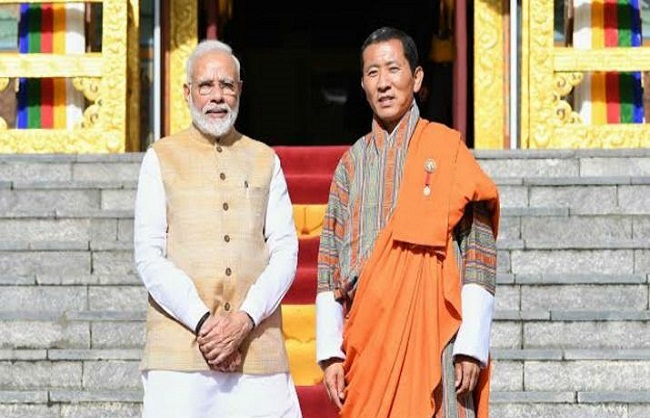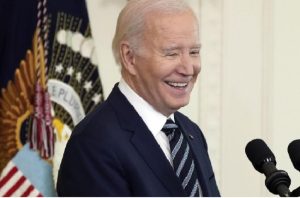Paro (Bhutan)/ New Delhi, Aug 18 : Taking forward the warm and friendly relations between the Asian neighbours India and Bhutan, Bhutan prime minister Lotay Tshering on Sunday addressed media in Paro (Bhutan) expressing that he was grateful to India for building a ground station (a part of India’s South-Asia satellite) here and said the situation in Doklam region was normal now.
“Through PM Narendra Modi ‘s leadership, Indian Space Research Organization (ISRO) is willing to help us build human capacity in that. We are looking forward to it”, said the Bhutanese PM.
The main theme of PM Modi’s two-day Bhutan visit was building healthy people-to-people contact between the two neighbouring countries and applauded him for his successful visit to the Himalayan country, said Bhutanese PM.
“We did not have any dialogue on Doklam this time because we don’t have issues on Doklam this time. Everything is normalised. We have always believed that three countries- India, Bhutan and China involved in Doklam will come to a logical conclusion”, said Tshering in Paro.
Earlier today, the Bhutanese PM expressed happiness over PM Modi’s two-day successful visit here as India and Bhutan engaged in bilateral cooperation at multiple levels and both countries shared a heart-to-heart connection.
Earlier, today people in Bhutan lined in the streets to bid adieu to PM Modi while leaving the Paro International Airport on his return towards Delhi.
On his second day visit to Bhutan, PM Modi attended a cultural programme at Tashichhoedzong Palace in Thimphu and also held a meeting with Bhutan’s Leader of Opposition, Pema Gyamtsho.
The two countries have shared a warm and time-tested relationship which continues to strengthen under PM Modi’s leadership.
This is second visit and the first visit by Narendra Modi after being re-elected as prime minister for second term reiterating Modi government’s priority to ‘Neighbourhood First’ policy.





